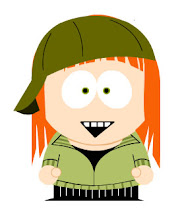 I read Stargirl by Jerry Spinelli for the "Something About Me" reading challenge. It is a young adult novel that takes a look at the conflicting emotions teenagers face when presented with someone different than themselves. The character Stargirl is, well, weird. But in a sweet and endearing way. The other kids don't know what to make of her. Our narrator, Leo, becomes torn between his growing feelings for her and his desire to conform and be accepted by the rest of his peers. The novel was a well-written super fast read. It was enjoyable and I found it easy to relate to the characters.
I read Stargirl by Jerry Spinelli for the "Something About Me" reading challenge. It is a young adult novel that takes a look at the conflicting emotions teenagers face when presented with someone different than themselves. The character Stargirl is, well, weird. But in a sweet and endearing way. The other kids don't know what to make of her. Our narrator, Leo, becomes torn between his growing feelings for her and his desire to conform and be accepted by the rest of his peers. The novel was a well-written super fast read. It was enjoyable and I found it easy to relate to the characters.What I liked:
I think it was a fairly realistic view of kids of high school age (well, except for the complete lack of smoking, drinking and drugging, but those issues weren't the point of the novel, so we'll forgive the omission). I think we all knew someone like Stargirl, an outcast for no other reason than that she was a unique personality and didn't bother to try to conform. Looking back, I think the reason other kids would steer clear of kids like Stargirl was that they envied them their fearlessness, the ability to just be who they were without worrying about the opinions of others.
I liked her random acts of kindness. In particular I LOVED what she does with spare change. So much so, that I intend to do it myself. Which leads me to my favorite excerpt from the book:Throughout the day, Stargirl had been dropping money. She was the Johnny Appleseed of loose change: a penny here, a nickel there. Tossed to the sidewalk, laid on a shelf or bench. Even quarters.
"I hate change," she said. "It's so... jangly."
"Do you realize how much you must throw away in a year?" I said.
"Did you ever see a little kid's face when he spots a penny on a sidewalk?" she said.
I liked the old man who had become a kind of mentor to a group of the kids. He was a font of wisdom, yet he didn't just dole it out, he made the kids come to the realizations on their own.
What I didn't like:
Well, to be honest, I can't really think of anything. Oh, wait, there is something. Spinelli spelled Hillari with an "i." That replacing the "y" with an "i" thing for the sole purpose of... well, nothing really, annoys the hell out of me. A byproduct of growing up with a bunch of girls named Candy, Mandy, Tracy, Wendy, Becky, etc., who on the same whim everyone was having back then, became Candi, Mandi, Traci, Wendi, Becki, etc., I guess. They're parents didn't do it to them, they did it to themselves, and then they did it to their kids. Oh, the 80s. :) So I didn't like that, but that's just a petty thing.
Overall, great book! My daughter said she hadn't gotten to it yet, so I'm going to push her on it. And I will be getting her the sequel, which I will also read.

I borrowed the image from 3M's review, because the image from Amazon looked like it was glowing like neon.





